When Will We Get Back to Normal?
A veteran health reporter says the end is near. But there's a huge caveat.
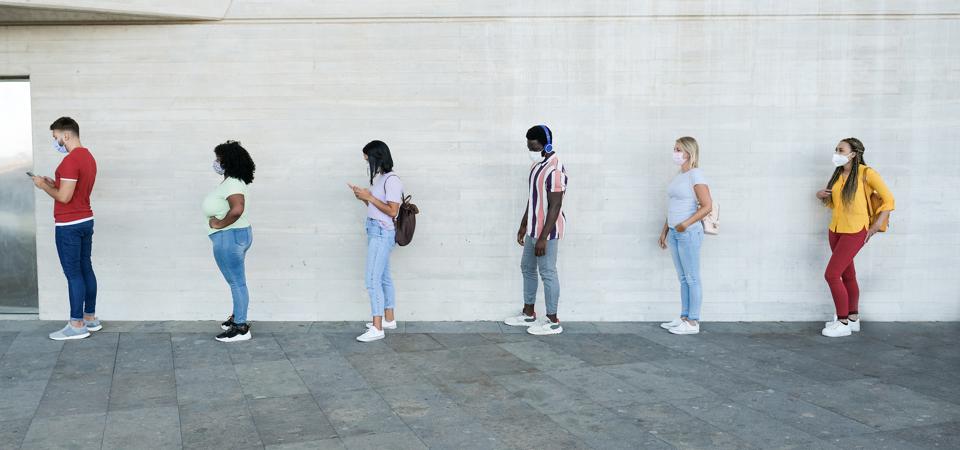
The longtime pandemic journalist, late of the New York Times, Donald G. McNeil Jr., spent months warning us that COVID-19 was much more dangerous than most people thought and telling podcast listeners that, even though restaurants were re-opening on a limited basis, he personally would not accept that risk. So, it’s newsworthy that he now believes “The End IS Near. No, Seriously.“
His key point, though, is that “the end” is a fuzzy, fraught concept.
[T]he Black Death and the Spanish Flu ended only as epidemics.
The pathogens that caused them didn’t vanish. They’re still with us. But you don’t need transmission exterminated to say an epidemic is over. You just need it manageable.
What that means is local and, in many ways, personal.
My epidemic may end before yours does.
Our national herd has many sub-herds. Immunity’s growth rate is variable, not just state by state, but block by block, and profession by profession. Front-line nurses and meatpackers, homebound software engineers and transitioning schoolteachers are all increasing their immunity levels by different routes.
It’s also, fundamentally, psychological:
So what’s “normal”? Shopping without masks? Hugging your grandchildren? Taking a flight? Catching a movie? Breaking up your pod? Reading a newspaper that doesn’t contain a single Covid-19 story?
Yes, all of the above. But they all boil down to the same thing: “normality” is actually not a number like 85 percent immune. Normal means we’ve reached a risk-of-illness-or-death level we can accept. [emphasis in original]
Epidemiology isn’t the only science that dictates when pandemics end. Psychology plays a big role.
With flu, “normal” is 12,000 to 60,000 dead per year. Some of us know that, some of us don’t. As a result, some of us get flu shots, some of us don’t. Maybe in the future, some of us will wear masks in December and January and some of us won’t.
But at some point, we each individually decide “OK, I can live with this much risk.” Then peer pressure kicks in. “Well, if you can, I can too.”
It’s already started. I live in an aggressively mask-affirmative Brooklyn neighborhood. But just in the last couple of weeks, I’d say that roughly 20 percent of the masks have come off — on the sidewalks, that is.
Demasking indoors is still in transition: in restaurants yes, in grocery stores no. That makes little sense, but it’s how it is. Now even Trader Joe’s says it will ease up on masks, though some of my neighbors are clearly unhappy about that.
All of the local grocery stores now permit the fully vaccinated to shop unmasked. Having received my second shot almost two months ago now, I do so. But it’s odd, in that probably three-quarters of shoppers remain masked, even though I’m in a community where most adults are fully vaccinated. Hell, my three over-16 stepchildren have all had their second shot and my 12-year-old daughter has had her first.
At what point do we accept our illness-or-death risk? That’s not a collective decision. It’s an individual one.
I’m already eating at the bar at my corner beer-and-burger joint again.
On the other hand, I’m not willing to fly to India just now. Not as much out of fear of Covid but because, if I happened to have, say, a heart attack, I clearly would be unable to get a hospital bed or an oxygen mask.
That seems like a perfectly reasonable risk calculus to me but others will surely be more and less cautious.
But, again, the psychology is the key. And we’re not rational beings in terms of risk calculation.
Last year, despite all the ink spilled on it, Covid-19 was our leading cause of death only in some weeks. I vividly remember when it first hit № 1: it was on April 7. Nonetheless, it still ended 2020 at just № 3, after heart disease and cancer.
This year, because the January-February surge was so bad, it will probably be № 3 once more. But never again after that. Too much immunity, not enough kindling left for another firestorm.
However, please note: with the exception of Alzheimers and freak accidents like lightning strikes, almost all those top 10 causes of death are abetted by risks some of us long ago rationally (or semi-rationally) decided to accept: smoking, drinking, overeating, driving, kissing, chainsaw-juggling and so on.
Risks increase with age: no one dies at age 13 from their first cigarette. Covid death risk also increases with age; our national nervousness is age-stratified. (We know this from watching the average age of hospital admittees drop.)
Flu, at № 9, is the closest thing on the American mortality list to Covid-19. We all know how to minimize our flu risk — flu shots. But many of us don’t bother. We accept what we perceive to be our risk. Flu is objectively scary — but we aren’t very scared.
There’s a lot more to the piece, including lots of charts and graphs presenting data.

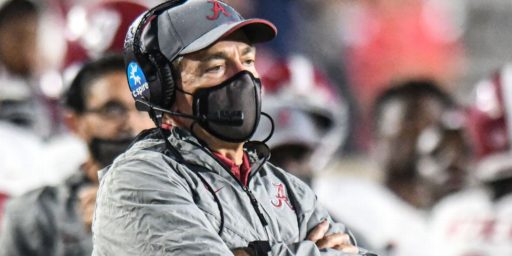
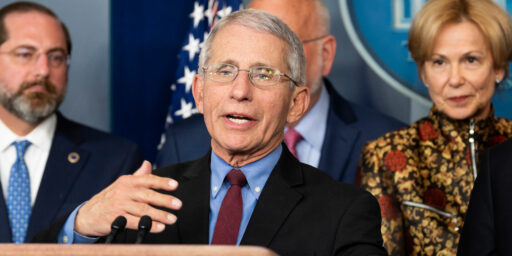
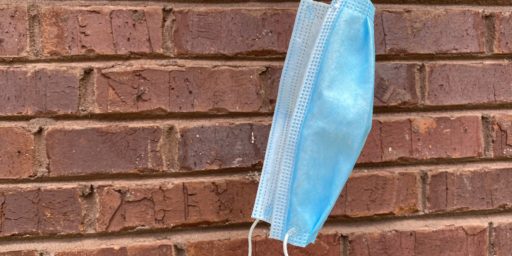

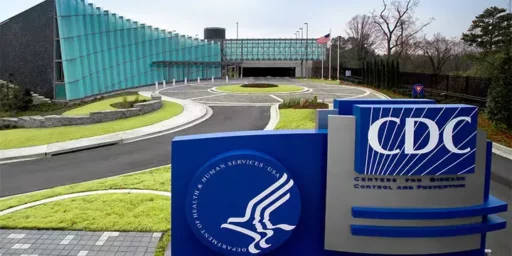
It has been interesting to see the level of risk-aversion among my friends and family members.
My father is extremely risk-averse, my brother never stopped flying and traveling for work and pleasure.
Like most people, we tried to navigate the risk while still chasing our dreams – which meant 5 real estate transactions in 2020, complete with photographers, inspections, movers, and interstate travel – albeit masked up.
Our definition of normal will never be the same. I may be lured back to a Metallica concert or Broadway play, but it won’t be without some trepidation. I will mask for airplanes for the rest of my life.
That’s normal enough for me, in fact I think of that as a course-correction more than a burden.
See? If we’d all decided to take a high risk of death by COVID or insufficient hospital beds and medical personnel, the pandemic would have been over very early in trump’s last regnal year, just as the Turd D’Orange wanted.
I recall Trump saying that he was “shocked” to learn that people died from the flu. Really? If my cloud of unknowing was as big as his, I’d be embarrassed to admit it. Oh, well. He also said that “nobody knew health care could be so complicated.”
As you note, normal is going to be fuzzy right now. We are already living in a society split into two: the pandemic risk is essentially over for the vaccinated, but is still raging at a high rate for the unvaccinated. And it’s not just the delusional Trumpers who aren’t vaccinating. One employee here has been super cautious throughout the whole pandemic but only overcame her fear of vaccines this week, and got her first shot. She was truly frightened the vaccine would make her more sick than Covid. And the father of one of my daughters friends, while fairly apolitcal, firmly believed that if you kept fit, ate well and got proper rest you couldn’t get a bad case. He honestly believed he didn’t need the vaccine and his family couldn’t convince him otherwise. He was only 53, but when he got it he went very quickly. They buried him last week.
My daughter said something last February that has stuck in my head: “Dad, I just don’t want to be that idiot that gets COVID after I was eligible for the vaccine.” I would think everyone would feel the same way, but an awful lot of people, even non-Trumpers, simply are unable to process the health information that surround them in a useful way.
@MarkedMan:
I read somewhere that a number of people who were reluctant to get the vaccine would do so (or did so) if their own doctors told them to get it. I suppose it’s natural to trust your own physician more than someone unknown to you being quoted in a news report, no matter how reputable.
That’s truly sad about the father of your daughter’s friend.
@MarkedMan:
That one works in my office, or at least she will again when she and her husband have been out of the hospital and off oxygen long enough to come back. I am just glad no one is burying one of them. It all came down right after she reported that she was not vaccinated “by choice.”
Since the beginning death rates have fallen at the same rate as cases, trailing by 3-4 weeks. But that doesn’t seem to be case anymore. While overall death rates are falling, it is much slower than case rates
Seriously, What’s normal?
Of all the known pathogens that have afflicted humanity for ages, just one has been eradicated: smallpox.
Samples of the virus exist in a few labs in a few countries. But it does not circulate out in the world anymore.
We could eradicate polio, too. We would have, if more people were willing to be vaccinated. All the rest, from bubonic plague to hemorrhagic fevers to dengue, etc. etc. are still out there.
SARS-CoV-2 is too widespread to be eradicated soon, and not all vaccines in use are effective enough. But with enough people vaccinated, transmission should go down to tolerable levels. If annual vaccinations prove necessary, and if we keep them up, and if more unvaccinated people take the opportunity to be vaccinated, we could conceivably eradicate this trumpy virus in a couple of decades.
With several assumptions, like it doesn’t spread among animals. Say it can infect dogs, for example, who then can transmit it to other people and dogs, even if dogs don’t get sick from it. This creates a virus reservoir and allows for the evolution of variants, which might unleash outbreaks from time to time.
If this were the case, then vaccinating dogs would be a good idea. It would be more complicated if it spread among livestock.
On a related topic, the lab leak hypothesis, there are few matters to talk about.
One is that scientists tend to search first were they expect, largely from past experience, to find what they’re looking for. A new virus is likely to come from some animal, therefore we look at possible transmission from an animal, and look for that virus, or a closely related one, in such animals.
If this fails, and it does quite often, the search is widened to other suspects known to be a possibility. This does not mean the initial assumption was wrong, nor that the new assumption is right.
Consider dark matter. The search for it has been going on for decades. The first suspects were non-radiating, massive objects of normal matter, as yet undetected Then it was weakly interacting massive particles, again as yet undetected. Next it was the rest mass of the neutrino, which actually turned to be there and accounted for a low percentage of the “missing mass.” For a while it was thought we simply misunderstood gravity, and thus galaxies can spin faster than their mass leads us to believe, while not flinging stars away from them, once we truly understand how gravity works.
None of these has panned out.The “nightmare scenario” is that there exist particles that interact only gravitationally, either with their own kind or with normal matter. This would mean a very unsatisfying need to accept we’ll never know squat about them, other than their mass, if they exist at all.
So, not finding the source of a virus, even in a geographically delimited area, after 18 months or so, is not something I find particularly troubling. We don’t know what the source or reservoir of Ebola is yet.
As SARS-CoV-2 foes, we should definitely consider it might have leaked from a lab in Wuhan. But that merely adds steps to the search. Where did the virus come from before it was in the lab? Did it mutate in the lab and become infectious to humans, or was it genetically altered, or did it come from a lab animal, or did an infected lab worker carry it inside? And I can think of more questions.
The thing is finding it leaked from a lab still doesn’t tell us where it came from, only, if true, where the outbreak started.
The second point is that if it leaked from a lab, we may experience negative consequences for the next pandemic.
SARS didn’t come from a lab, neither did the 1918 flu, bubonic plague, smallpox, polio, AIDS, Ebola, Lyme disease, malaria, etc. Therefore microbiology labs are not the place to look fr the next dangerous pathogen. But they may be, if COVID leaked from a lab.
Even if it did, the precautions needed to stop or mitigate the spread are the same: distancing, masks, hand washing, and vaccines. But in the peculiar way many people’s minds seem to work, having someone to blame also implies the mitigation strategies are not necessary, because it’s all China’s fault.
This might lead to again neglect preparations for the next pandemic, and when it hits we’ll be, again, very vulnerable to it.
@CSK:
A lot of people don’t have “their own doctor”. As middle class and white-bread as I am, I didn’t have anyone I regarded as my primary care physician until well into my forties. Moved a lot and didn’t much need one.
@Doug Mataconis:
I suspect that “normal” for most people is not wearing a mask, not social distancing, and being able freely to attend public events such as theater, concerts, sports, and movies and private events such as dinner parties without the pandemic restrictions. In other words, to do what you could do before March 2020.
Visiting my parents last week for the first time since before the pandemic, I was surprised how quickly I adapted to not thinking about the virus at all. I’m glad it doesn’t appear to have had a permanent effect on my psyche.
The company where I work is still having us do remote work and so far hasn’t given any indication of whether or when they want to bring us back to the office. I’m perfectly ready to go back if they ask or tell me to, or not if they don’t.
I’ll be continuing to use Instacart till the end of the year (as long as they have enough people willing to deliver) because I already paid a fee to waive travel costs.
A lot of places still seem to require masks, and I don’t mind wearing them whether I need them or not. Even when they’re not required, I still think the sight of wearing them provides comfort to those who are unvaccinated.
@Kathy:
I saw an article on that recently. Pointed out that smallpox was almost unique in that it had evolved to only survive in humans, no animal hosts. So once it was eradicated in humans, it was gone. I see stories about COVID in other species.
@gVOR08:
I believe that CSK might be referring to the study that was done with 20 “hesitant” people*. They were shown videos from celebrities and politicians, and they didn’t believe them. Then the participants were shown videos from actual doctors who were working with COVID patients. They didn’t know the doctors, but they trusted them. At the end, they all(?) said that they believed the doctors and would probably get vaccinated now.
=====
* it ended up being 19; one dropped out.
Locally, infection levels are going down fast.
I’m vaccinated, but having had a massive pulmonary embolism a few years back, and having my SpO2 regularly hovering around 90-92, I’m worried that even a mildly symptomatic breakthrough case could have a very bad result. I’d rather not be dragging around an oxygen tank for the rest of my life.
Also, one of my idiot brothers nearly died from it, and is not back to normal, and I don’t think we know whether bad cases are genetically determined, but it seems plausible enough that I add that to my risk calculations.
Even vaccinated, I do not want to be exposed to covid if I can help it. So, even though the cases are dropping locally, I keep noticing that we are still at a level higher than our first and second wave peaks.
The data has shown that outdoor activities are way less dangerous than we initially thought, so that opens up a lot — but indoors? Nope, not yet.
Irrational fear because of my anxiety problems, or perfectly reasonable caution? No idea.
Life with an anxiety disorder is always exciting — everything can be a daring adventure. People who go sky-diving and stuff just to feel alive have nothing on me.
Normal will be doing what you want to do without special precautions. I regard it as only polite to wear a mask if the store staff are wearing masks. I wear a mask at a drive up window. I wear a mask at the grocery store. Yesterday I went to Publix and found half the staff not masked. Apparently they’ve dropped the requirement. About 3/4 of customers were masked, but the mask required signs were gone.
For my neighbors, normal means going to the sports bar unmasked whenever they feel like it, which many of them have been doing all along. They regard it as not being ruled by fear. I regard it as free riding.
Amidst ready, free, availability we’ll continue to have large numbers unvaccinated. Many of them not because of political views, but we won’t require them to be vaccinated out of deference to the snowflake Trumpers. We’re still losing almost 600 dead a day. Tens of thousands of Americans will die unnecessarily after we’ve returned to “normal”.
@Mu Yixiao:
I was referring to something I read weeks ago about people trusting their own doctors, providing they have them, over what they saw in the media. But what you quote is interesting. I’d trust a doctor on health matters more than a celebrity. Wouldn’t you?
@CSK:
The NPR story
@Mu Yixiao:
“All 19 said their own doctor would be more influential.”
It’s good they trust the person directly seeing to their health care over Trump.
There’s all sorts of variations on risk assessment but the virus doesn’t care. St Petersburg still has an indoor mask requirement that is universally followed in the few places I go indoors. And I’m happy with that.
My neighbor who loves him some Trump doesn’t much wear a mask unless required. So he tells me he masks at work and in the store but not other places. So he and I end up essentially taking the same precautions. Which seems great to me!
Of course, his threat assessment is that Black Lives Matter activists marching on his house is the real risk; so he’s always armed. So there’s that.
And I’d add that most folks who’ve known me over the years would NEVER describe me as ‘normal’. Even after I got the jab.
@Gustopher:
A quick look at the Johns Hopkins site tells me on May 26th there were around 24 thousand cases reported in the US. A year ago, May 26th 2020, there were around 19 thousand.
So, even with extensive vaccination, the country’s not back to the number of cases when the pandemic was on the rise, and the first serious revolt to reopen was underway. The only difference, is vaccinated people are at less risk.
@JohnMcC: Re: BLM
It’s funny – I am the only person I know with as much as a Black Lives Matter t-shirt, but I don’t own a gun, and if I marched on your neighbor’s house it would be only to wish him good health.
I am beginning to think they misunderstand BLM allies and supporters.
We need a new normal. We need to review the things that were done right and the things that were done wrong and make adjustments. Our new normal should make us more resilient to pandemics than we were in 2019.
@Slugger:
We should adopt a new normal, or at least make adequate preparations. I doubt many of us will.
Taiwan and South Korea, two countries that contained COVID spread, did make adequate preparations after being hit with SARS in 2002-2003. They are exceptions.
I expect hand sanitizer might remain widely available in public places for a while. Partly because it was in a few places before the pandemic* (not many). Mostly I expect restaurants to keep them. We’ll see how many people use them.
I’ve been carrying hand sanitizer for years, and will continue to do so. Now I’ll also carry a few masks, thought I’m not sure when I’ll use them. Certainly when there’s flu and cold circulating**, but perhaps also when in crowded places or when flying. I intend to find out what booster shots from childhood vaccines I should get, as well as getting the anual flu shot, and, if it’s necessary, an anual COVID shot as well.
Finally, I intend to stockpile actual N95 respirators, once they become more widely available and cheaper, and use them at the first sign of any pandemic.
* I recall hand sanitizer stations at the Fremont buffet in Vegas. Also at the entrance to some private hospitals in Mexico City, going back to 2008 or so.
** I’ve been free of the common cold for 14 months. That is the longest stretch in my life, and if I never again catch cold, I’d be only too pleased.
It’s funny in that there is only one piece of health information to process: Vaccines work. OK 1 1/2, and getting vaccinated will save one a whole world of trouble.
And so I get every vaccine available. Doesn’t cost me anything and might save me everything.
@CSK: I go completely the other way on FG. I’m surprised when he shows knowledge of anything (as opposed to merely claiming to know).
@Tony W: I have 2 t-shirts and a Black Lives Matter p/u.
They understand what OANN, Newsmax, and FOX news tell them, which is that BLM is out to get their white women. And their Lexus’ and Rolex’s.
@Kathy:
I should grab another pack or two now, as the past few years Seattle has had a few weeks of massive smoke because everything around us is on fire and they were impossible to get. Also handy in pandemics, of course.
And replacement filters for my air purifiers.
Not sure if I will ever go unmasked on public transportation again. Between the protection of myself, and the scary “Oh, god, what does he have?” effect that will give me more space… seems like a good plan.
@just nutha:
Please refresh me on when The Former Guy showed knowledge of anything. I’m sure there must be something, but I can’t recall the occasion.
@CSK: I should have used conjunctive mood for the verb. I was only speaking hypothetically. Mi bad. 🙁
@just nutha:
Quite all right. It still astonishes that anyone as boorishly ignorant as Trump could become president.
@CSK: Never mind being called a genius.
@OzarkHillbilly:
A very stable genius. I believe Trump’s preferred spelling of the last word is “jenius.”
@CSK: I thought his preferred spelling was “levi jeanius.”
@Kathy:
Timely: New dark matter map.
@OzarkHillbilly:
Nah. Too much like Latin.
@OzarkHillbilly:
Whereas you, clearly, are out to get Teve :-).
@MarkedMan: The 7 day moving average for the US is over 500. That’s dreadful. As much as folks want to move to a “post pandemic” world, this stat alone should make them pause. Alas, it has not.
I just returned from a business trip, my first air travel since February 2020.
Dulles Airport is still sparsely populated, or was when I flew out Monday. Many of the international carriers’ counters were not manned. There was nobody in front of me in the TSA Pre line. There were four people on the underground train to the terminal–not four in my car, four on the whole train.
The flight was full, masks mandatory, snack service pre-packaged and you got one can of whatever you wanted to drink and that was it.
Denver International was a different story, it was as busy as it was pre-pandemic (I would normally fly there three or four times a year so I remember). Everyone was masked due to the Federal mandate.
The flight back was full, same masking and services as the one out.
All-in-all, aside from Dulles being pretty empty and the changes to in-flight service, it wasn’t much different from pre-pandemic. I do have to commend United on how efficiently they operated the flights I was on, and my fellow passengers deserve credit as well. There was just a greater feeling of cooperation and sharing and awareness that other people do in fact exist.
Maybe I was just fortunate, but I hope it’s more common than just two flights.
@DrDaveT: If anybody ever did, he deserves it. 😉
@CSK: I think it was H. L. Menken who observed that no one ever went broke underestimating the intelligence of the American public. We have one whole political party that thrives on taking that message seriously–and literally.
@Kathy:
Before the anti vaxxers came out Measles had been largely wiped out in the United States and Europe
@Just nutha ignint cracker:
It was “the great masses of the plain people,” not the American public, but what the hell.
Here’s how the MAGAs would see it: Plain people = real people = patriots = Trumpkins.
I’m going to pretend at normal next week. Early in the week nine miles out by bike to the bar-and-grill noted for serving the bicyclists, then back. Later in the week, blood donation because it’s been eight weeks since I had my second Covid vaccination. I’ll have to see if the new blood place can transfer over records from the old blood place, as I was closing in on 12 gallons. More than that actually, but the old Colorado blood place couldn’t transfer over the records from a gallon or two in New Jersey.
@DrDaveT:
Hi’s posts’ have no effect’s on me.